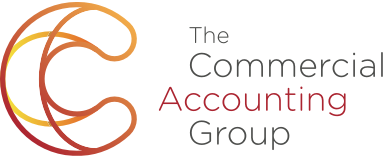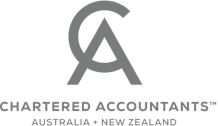Expert Knowledge You Can Trust
Employer Tax Planning – 2019
Staff Bonuses/Directors Fees
These expenses may be tax deductible prior to payment, as long as you are committed to paying these amounts. You will need to quantify the amounts, inform the staff and keep evidence of this decision prior to 30 June. Remember to deduct Pay-as-you-go (PAYG) Withholding and, in most cases, superannuation contributions will also need to be paid on these amounts.
Superannuation
For an employer to be entitled to claim a deduction for superannuation contributions, the contribution must be made (i.e. received by the superannuation fund) on or before 30 June. Remember, allow extra time when using a clearing house.
The Superannuation Guarantee (SG) contribution rate for the year remains unchanged at 9.5% of an employee’s Ordinary Times Earnings (OTE).
An employer does not have to make SG contributions in respect of employee’s salary over a “maximum salary base”.
Super guarantee contributions must be paid quarterly into the super fund by the 28th day after the end of the quarter. Contributions paid late are not tax deductible and a Super Guarantee Charge (SGC) and ATO penalties apply.
NSW Payroll Tax Rebate
The NSW Job Action Plan Payroll Tax Rebate scheme is designed to promote employment in NSW. It currently provides a rebate of $6,000 per new employee position employed and retained if you employ 50 or fewer full-time equivalent employees. The scheme runs to 30 June 2019 and applications must be lodged within 90 days of the employee commencing.
Single Touch Payroll (STP)
From 1 July 2019, all employers will be required to report payment of wages and superannuation to the ATO in real time.
We have a detailed the reporting overhaul and requirements for businesses here which includes provisions for extensions of time, carve outs for micro businesses (< 4 employees) and closely held employers.
No-cost and low-cost solutions for Single Touch Payroll can also be found via our STP article here.
PAYG Payment Summaries
If you have not already adopted Single Touch Payroll, ensure you give your employees their PAYG payment summaries by 14 July and lodge with the ATO by 14 August.
You can apply for an extension until the due date of your tax return if you pay wages only to closely held employees and you notify the ATO.
Ensure the following are included within the payment summary:
– Reportable Superannuation Contributions: Generally, refer to salary sacrifice contributions and contributions more than that required by SGC (9.5%) or industrial awards
– Don’t forget to include superannuation for directors which may not be on payroll reports
– Reportable Fringe Benefits: A fringe benefit is generally defined as a benefit not being salary, wage or other cash remuneration, derived from employment. If the value of certain fringe benefits you provide exceeds $2,000 in the FBT year, you must record the grossed-up taxable value of those benefits on the relevant employee’s payment summary
Payroll Tax
A business is liable for NSW payroll tax where your salaries, superannuation, taxable fringe benefits and deemed employee costs are over the relevant thresholds:
| Tax Year | Threshold | Tax Rate |
| 1 July 2018 to 30 June 2019 | $850,000 | 5.45% |
| 1 July 2014 to 30 June 2018 | $750,000 | 5.45% |
The NSW payroll tax threshold will be lifted to $900,000 in 2019-20, $950,000 in 2020-21 and $1 million in 2021-22.
You must register for payroll tax if monthly amounts are over the relevant monthly thresholds. Remember, different thresholds apply in each State.
Annual reconciliation due to be lodged and paid by 21 July – OSR are targeting Contractors as “deemed employees” and Entity Grouping provisions. When preparing the annual payroll tax reconciliation, don’t forget to include:
– Superannuation for directors which may not be on payroll reports
– Superannuation life policies – these may be considered as super contributions and may need to be included
– Fringe benefit taxable amounts – gross-up Type 1 and Type 2 aggregate amounts by 1.8868
Employee Share Schemes (ESS)
The offering of shares, options and other equity rights at a discount to its market value may fall within the employee share scheme (ESS) taxation rules. Under the ATO reporting requirements, employers are required to:
– provide employees with an ESS statement by 14 July and
– provide the ATO with an ESS annual report by 14 August
The reporting obligation arises in respect of employees who reside or work in Australia or have resided or worked in Australia during any part of the vesting period, regardless of where the company making the ESS awards is based. Penalties can apply for failure to report.








